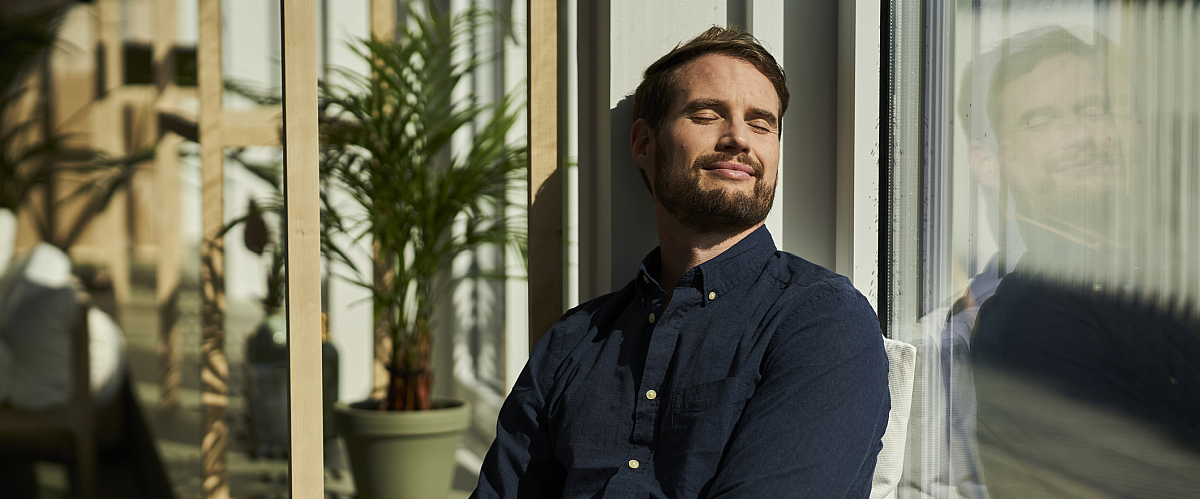The saying “less is more” sounds great, but what does it really mean? Our souls seem to long for less clutter in our lives, fewer obligations, and less stress. But how can you even begin to seek less in a world full of more?
“In Western society, our self-worth tends to be tied to how much we have and how much we have accomplished,” observes Yarvell Randolph Gardner, a Licensed Professional Counselor (LPC) with a master’s degree in Human Service Counseling (MHS). “But this isn’t the same as happiness, nor is it necessarily best for our emotional wellbeing.”
Enter the concept of simple living—also called voluntary simplicity, downshifting, or minimalism—which de-emphasizes consumerism and other trappings of modern life in favor of life’s simpler pleasures. We reached out to Yarvell, and her 15 years’ experience as a mental health professional, to help us understand the benefits of a simpler life and realistic ways to achieve it.
WHY SIMPLIFY?
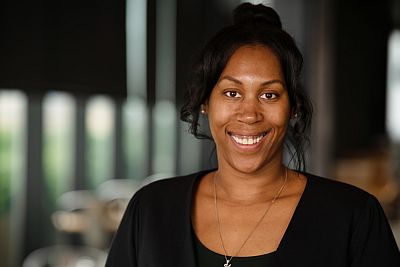
Yarvell Randolph Gardner, MHS, LPC
Yarvell herself has experienced the power of less. At age 30, she was on an ambitious career track but she noticed many of her senior colleagues were under enormous stress, and seemingly unhappy. “I looked around and wondered, ‘Do I really want this?’” she recalls.
Around the same time, she met someone whose sunny disposition and sense of work-life balance piqued her interest. That “aha!” moment prompted an eventual transition to private practice, which was a much better fit for what Yarvell wanted from her professional and personal life.
Simplifying can be life-changing as Yarvell experienced. But simplification doesn’t have to mean huge changes right away. Little ways to simplify can make a difference as they build up over time. Small decisions in our everyday lives where we choose less instead of more, or even just find ways to reduce some complexity in our lives can have a positive impact in ways you may not realize at first. Yarvell highlights reasons why it may be a good idea to scale back, citing research findings from the American Psychological Association and National Library of Medicine.
Improved wellbeing: You tend to worry less when you have fewer things to worry about. In fact, one study found a link between materialism and poor wellbeing, while another found that comparing yourself to others is associated with both depression and anxiety. Living with less also encourages gratitude for what you have, a powerful practice with lasting impact on health and wellness.
Better sleep: As we’ve learned, when you manage the stress in your life, better sleep often follows. A simpler life means you won’t lose valuable shut-eye stressing about things that don’t matter.
Greater concentration: With fewer distractions, you can focus your attention on things that matter. There is evidence that limiting the “noise” from television and other media in particular can improve brain function and concentration.
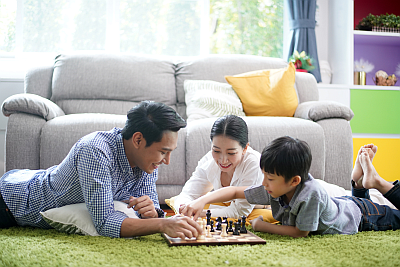 More free time: Getting a better balance by dialing back our focus on possessions and managing our obligations can give you back the time you’ve been longing for—precious hours you can spend doing the things you actually enjoy. “It helps to reframe the simpler lifestyle not as living with less, but as making time and space for more of what makes you happy,” Yarvell shares.
More free time: Getting a better balance by dialing back our focus on possessions and managing our obligations can give you back the time you’ve been longing for—precious hours you can spend doing the things you actually enjoy. “It helps to reframe the simpler lifestyle not as living with less, but as making time and space for more of what makes you happy,” Yarvell shares.
Closer relationships: With fewer demands on your schedule, you’ll have more time to invest in yourself and others. You may choose to nurture fewer, deeper relationships than maintain a vast network of dozens or hundreds of people.
More room in your budget: Money is inherently stressful for many people. As you shift away from trying to “keep up with the Joneses,” you’ll discover that physical things aren’t what make you happy. You may also be amazed at how much you were spending on things that didn’t really bring you all that much joy or satisfaction!
Less waste: We acquire things with the best of intentions. It was a gift, you found it on sale, or you wanted to try that new fashion trend. “Then one day you look up and you’re surrounded by things—clothes you don’t wear, books you’ve never read, and so on,” says Yarvell. Simpler living is about becoming more mindful of what you consume, which is better for both your wallet and the environment.
8 WAYS TO SIMPLIFY
Simplifying your life is definitely a process, especially as the pursuit of more is so engrained in our culture. Yarvell recommends taking these steps toward simplification and greater contentment.
1. Set your priorities.
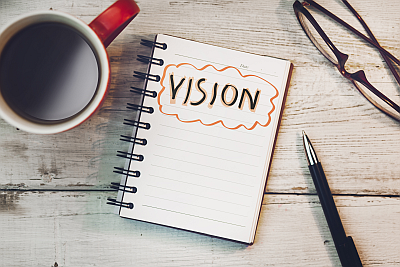 Make a list of the three to five things that are most important to you in life, whether it’s people, causes, activities, or something else. Actively focusing on these few aspects of your life gives you permission to let go of the less important things competing for your attention.
Make a list of the three to five things that are most important to you in life, whether it’s people, causes, activities, or something else. Actively focusing on these few aspects of your life gives you permission to let go of the less important things competing for your attention.
2. Declutter your home.
Simplify your stuff and the rest may follow. Donate or recycle unused or duplicate items keeping only what you really need and love. Bonus: Once you are organized, you’ll know where things are and be less likely to overspend on future shopping trips.
3. Rethink your media intake.
Media is where we get many of our notions of what the perfect life should look like, including all the purchases that will get us there. Spend less time on social media and TV and you’ll be less likely to compare yourself to others—not to mention, you’ll avoid time-consuming distractions.
4. Adjust your work-life balance.
Simplifying your life often results in a healthier relationship with work. This doesn’t mean you’re any less committed to your career or employer, Yarvell points out. “It’s OK to be dedicated to your work, but it shouldn’t be the only thing in your life. You want to diversify where you spend your time and energy so you always have multiple aspects in your life where you can find meaning and purpose,” she explains. (Read: 7 Tips for Better Work-Life Balance)
5. Learn to say “no.”
This is a big one, as saying “yes” too often can quickly overwhelm our schedules and to-do lists. You can’t stop people from asking you to volunteer or attend an event, but you can politely decline opportunities that are low on your priority list (see #1 above). “My favorite way of handling this is to say, ‘I’m sorry, but I’m not going to be able to do that.’ It’s simple, pleasant, and direct,” Yarvell shares.
6. Invest in experiences rather than things.
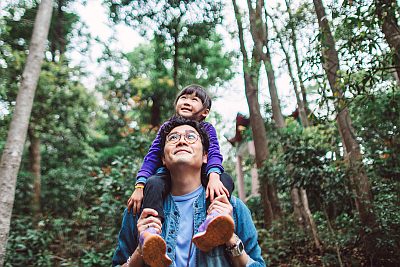 Once your space is free of extra stuff, you may find that outings, travel, and other activities are a more fulfilling way to spend your hard-earned money. There is no limit to the number of memories you can make—especially when you share them with family and friends.
Once your space is free of extra stuff, you may find that outings, travel, and other activities are a more fulfilling way to spend your hard-earned money. There is no limit to the number of memories you can make—especially when you share them with family and friends.
7. Seek joy.
Before buying or doing anything, ask yourself one key question: Do I need this, or does it bring me joy? If the answer is no, then find a way to move on. This works for everything from the curtains you hang in the living room to your weekly coffee date with your neighbor. “Make sure owning, wearing, using or doing it is either important for everyday living or makes you happy,” Yarvell recommends.
8. Reevaluate as needed.
Take time to think about what is most important to you at that moment and focus on it. It may be something related to family, work or yourself. There’s no right or wrong answer. Your definition of a simpler life is bound to change with time. “Even simple lives are constantly changing. Take stock and match your lifestyle to the season that you’re in,” says Yarvell.
THE SIMPLE LIFE
As with any lifestyle change, the journey toward a simpler life is best taken one step at a time. And granted, it takes effort to overcome the constant pressure of more.
Be patient and show yourself some grace. Don’t beat yourself up as you donate that dusty exercise equipment or bow out of the book club that you tried but didn’t like. Remember, you’re only human! And you deserve to be happy.
As Yarvell puts it: “To be truly content is the only way to lessen everyday stressors.”
![]()
Yarvell Gardner, a licensed professional counselor and psychotherapist, has been Aramark’s designated Counselor at our Philadelphia headquarters location since 2019, when our Cigna Employee Assistance Program (EAP) was expanded to include on-site counseling.
Yarvell’s services have been very much appreciated by our associates, during a time when life has felt off-balance and overwhelming for many. Yarvell has shared self-care techniques and guidance with our team members, taking virtual appointments and leading virtual mental health sessions on a regular basis throughout the pandemic. Aramark already fully covers our employees for EAP counseling — through Yarvell we are proud to be bringing this service directly to our people on-site.
If you still find stress too much to manage, reach out to a mental health professional for help or contact the National Alliance on Mental Illness (NAMI) HelpLine.
Note: Since everyone’s health history and nutritional needs are so different, please make sure that you talk with your doctor and a registered dietitian to get advice about the diet and exercise plan that‘s right for you.

